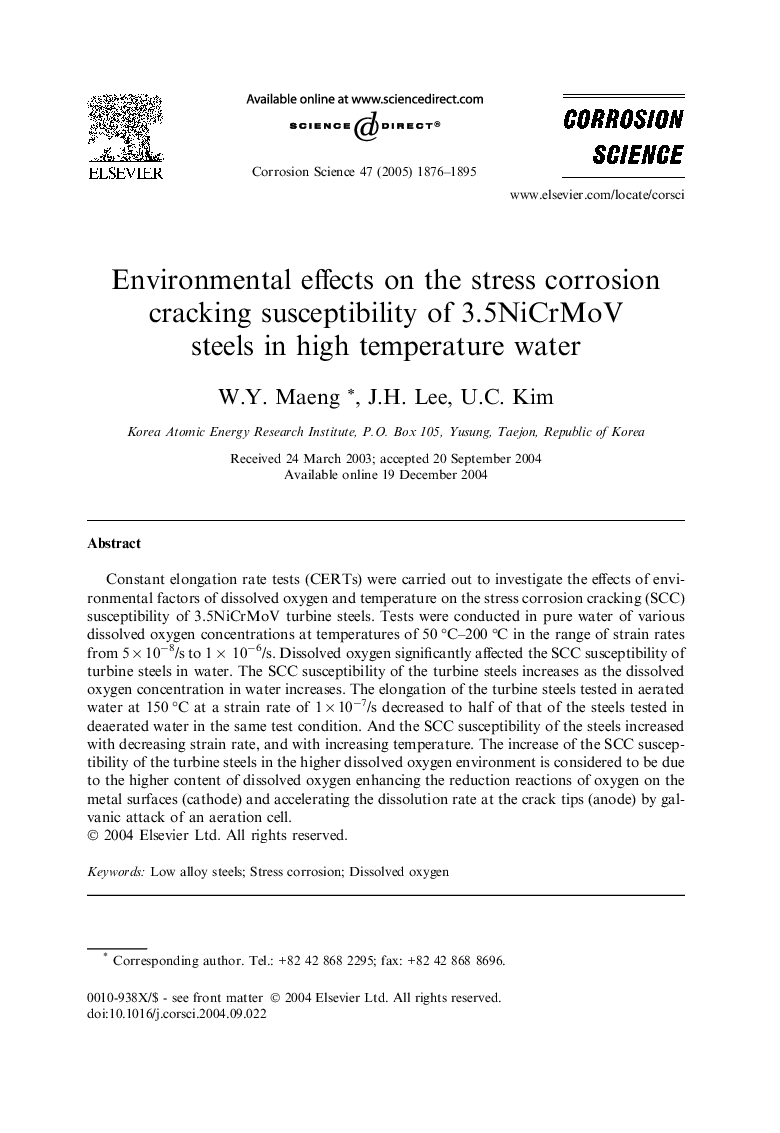| Article ID | Journal | Published Year | Pages | File Type |
|---|---|---|---|---|
| 1472492 | Corrosion Science | 2005 | 20 Pages |
Constant elongation rate tests (CERTs) were carried out to investigate the effects of environmental factors of dissolved oxygen and temperature on the stress corrosion cracking (SCC) susceptibility of 3.5NiCrMoV turbine steels. Tests were conducted in pure water of various dissolved oxygen concentrations at temperatures of 50 °C–200 °C in the range of strain rates from 5 × 10−8/s to 1 × 10−6/s. Dissolved oxygen significantly affected the SCC susceptibility of turbine steels in water. The SCC susceptibility of the turbine steels increases as the dissolved oxygen concentration in water increases. The elongation of the turbine steels tested in aerated water at 150 °C at a strain rate of 1 × 10−7/s decreased to half of that of the steels tested in deaerated water in the same test condition. And the SCC susceptibility of the steels increased with decreasing strain rate, and with increasing temperature. The increase of the SCC susceptibility of the turbine steels in the higher dissolved oxygen environment is considered to be due to the higher content of dissolved oxygen enhancing the reduction reactions of oxygen on the metal surfaces (cathode) and accelerating the dissolution rate at the crack tips (anode) by galvanic attack of an aeration cell.
